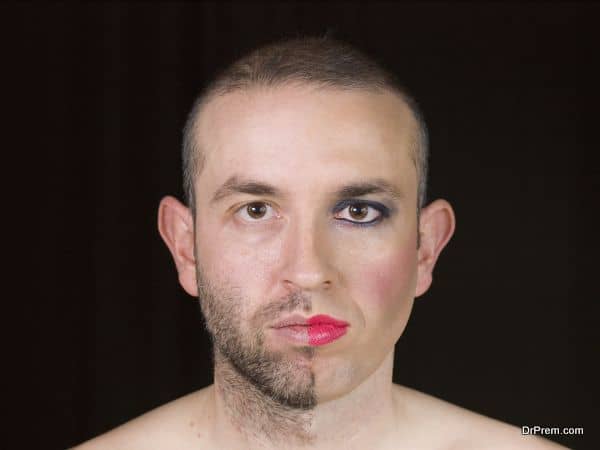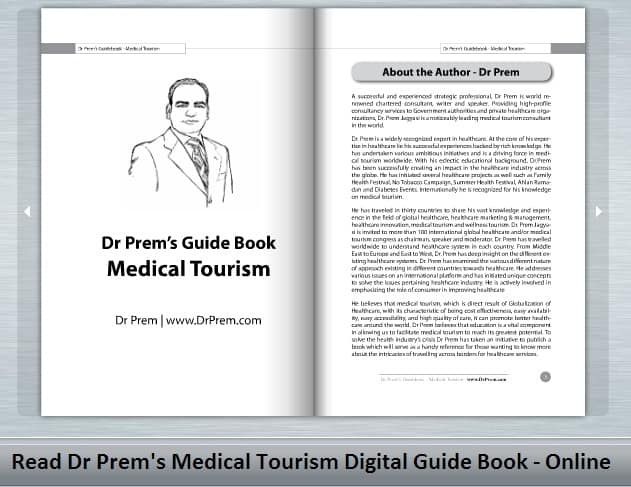The globalization of healthcare has brought up several ethical issues surrounding the practice. The fact that people travel from their home country to a medical tourism destination to avail certain treatments that are illegal or unavailable at home brings up several ethical concerns. Besides that, several facilities catering to medical tourism are utilizing unethical practices to woo potential medical travellers. The aim of this section is to highlight some of the main controversies surrounding the ethical issues within medical tourism, so any potential medical traveller is well informed before commencing travel.
How medical tourism gives rise to ethical concerns?
The laws and healthcare regulation in developed countries are not strict as they are in developed nations. Medical tourists do not have the same medical problem or condition so, every patient have their different priorities to opt for medical treatment overseas. Many medical tourists make this decision because they need organ or tissue transplants done. In developed nations, the waiting list for organ or tissue transplant is huge and patients have no other option than to travel out of the country for the procedure. There are several debatable surrounding transplants in the developing world, as the source of the organs or the tissues is usually a mystery for most patients.
In many countries, there have been several issues in the past regarding the legitimacy of organ or tissue transplants. There have been reports of organs being obtained without the permission of the donor, such as from prisoners and poor patients who have no information and knowledge of the kind of treatment they are receiving at a medical facility.
As a potential medical tourist, it is essential for you to check with your treating facility and determine that the organs they facility transplants in patients, both local and medical tourists, are being sourced in a legal way. It is better to ensure that your selected healthcare facility is not involved in any wrong practices.
An illegally obtained organ can put the donor in danger, it could even be hazardous and not a complete match to your body. This can maximize the chances of organ rejection and can make your health condition worst in the near future. Therefore, you should ensure that the healthcare facility has obtained needed organ with the consent of donor and it is going to be a complete match to your own medical profile.
It is important to ensure these things before you fly overseas for any type of organ and tissue transplant. You can also try to get personally in touch with the donor, if possible, so that you know that the organ was obtained legally.
Ethical issues to consider when looking at medical tourism
Generally, the American Medical tourists save a substantial amount with their medical tourism bills, an attraction of lower cost. However, it is slowly receiving some negative feedback due to the associated ethical issues. Following are some of the issues:
Lack of attention to local patients
In the bid to luring the international patients, the local patients are feeling the dearth of good quality medical equipments and resources that are directed to the former. It has been found out that the funds invested by the medical industry are directed towards the health care of the international patients.
Moreover, the quality of the treatment and surgical procedures that are sometimes termed as illegal in a country are still conducted keeping in mind the money involved. This questions the ethical policies of the medical tourism industry.
Medical tourism procedures:
The US along with many other countries consider a psychological evaluation session before sex reassignment surgeries. These sessions are necessary to understand whether these surgeries need an approval or not. As a result of these strict regulations, many patients looking forward to such surgeries travel to Thailand which has easy or no laws for such surgeries. Hence, ethical questions about the process can be raised. Similar examples are seen in cancer treatments, stem cell therapies and fertility treatments.
People who do not have such procedures approved in their own countries, travel to countries approving such procedures. As a result, many illegal medical surgeries such as organ transplant are flourishing, causing a concern for the associated government.
Quality Concerns
Medical tourism industry is concerned with the treatment quality it provides. They lure the customers to invest in the policies. Moreover, spas and health care facilities in different countries do provide the best solutions.
However, serious health care conditions need to be investigated, if the practitioners or health care facilities are certified or not. Many such serious operations have recorded to cause side effects such as infection or incomplete process. Hence, a single wrong decision made during such health tourisms can cause you a bomb, affecting your health as well.
Making the right choice
There is a vast range of medical tourism organizations providing the best health care facilities to the individuals while travelling. These are easily available online too. These agencies are the mediators which provide patients with various such facilities to choose from.
However, apart from providing the facility, these agencies do not give you advice as to what is the best for your medical condition. Hence, it leaves the decision solely on you.
Ethical issues for medical tourism: Providing hospital documents in the local language
Also, certain medical tourism facilities only provide documents in their own regional language, leaving the foreign patient confused. These facilities are likely to lack translation services and have no concept of cultural competency. You should certainly avoid hospitals or clinics such as these as it is necessary to ensure the presence of an interpreter to ensure that you can understand all the legal formalities properly. Violations of ethics also entail providing insufficient legal documents to the patient (such as malpractice laws and consent forms), which leads to a lack of information for the medical tourist.
Ethical issues for medical tourism: Over charging a medical tourist
Since catering to the foreign patient, who can usually afford to pay more for a treatment than a local citizen, has become common practice for certain unethical doctors, they tend to do whatever they can to overcharge the medical tourist. This could be in the form of overprescribing hospital tests, charging more than the market price for a treatment and refusing to take care of post-operative complications.
Ethical issues for medical tourism: Dual pricing system
In some developing countries, the doctors pay more importance and attention to medical tourists for personal financial gain and neglect the critical patients in their home country. This has created a somewhat dual level of healthcare where the more experienced and knowledgeable providers prefer to cater to their high paying foreign patients, and the local patients have a hard time accessing specialist care.
However, on the other hand, some countries are following a dual pricing system, offering treatments to domestic patients at lower prices and the same to the international tourists at a much higher rate. This could be considered unethical practice, as medial tourists should be charged the market rate, and no more. Some countries enforce standard guidelines and price bands for treatments, established by the government or a health association in order to demonstrate equality for all patients. For instance, Turkey has a physician’s association that sets the price standards for most private hospitals.
Therefore, in order to avoid being duped by a foreign healthcare system, it would be beneficial to inquire about price differences between local and international patients.
Ethical issues for medical tourism: Organ transplant surgeries
Since organ and tissue transplants are so difficult to obtain owing to long waiting lists, many patients tend to seek foreign options and engage in medical tourism for organ transplants. However, the source of these organs is usually a mystery to most patients. There have been several issues regarding the legality of organ and tissue transplants in many countries. There were many reports of organs being obtained from prisoners without their consent or acquired by illegal means. As a patient, you should check with your treating facility to authenticate where the organs are coming from to ensure they are not engaged in any unethical practices.
How to steer away from unethical organizations in Medical Tourism
Organs and tissues transplant are surrounded by many controversies. Developing countries like India, Singapore and Thailand, doctors give more importance to medical tourists, obviously for personal financial gain and ignore the condition of the serious patients in their own country. This has created a double level of healthcare, where medical tourists receive high-quality treatment, while local people have a hard time finding specialist care.
It is essential for you to make sure that your selected healthcare facility does not have a dual-quality healthcare system, where foreigners are treated in a better way only to get financial gain. In some countries, healthcare facilities also follow a dual-pricing system, where treatment to local residents is offered at extreme fewer prices than what foreign patients are charged. This is an unethical practice, as medical tourists have to pay more than the market rate.
In some countries, regulatory bodies established by the government or health association, implement standard guidelines and price bands for treatment, in some countries there are no such checks and facilities charge medical tourists at their own will.
You should inquire about the price differences between local and foreign patients and this would be beneficial to protect yourself from such an incident. Certain unethical doctors try to provide more facilities to foreign patients because they generally can afford to pay more than the local patients do. Foreign patients are usually had to pay more for services, and you might have to pay for unwanted services or tests. In addition to this, some medical tourism facilities provide documents in their local language, so that a medical tourist could not understand those guidelines
Many facilities lack translation services or have no concept of cultural aptitude and you should try to avoid such healthcare facilities. It is important for you to determine that the healthcare facility you have chosen will provide all documents at least in English or provide the services of an interpreter to ensure that you can understand all legal formalities.
It is important for you to discuss all these concern before setting out your journey and make sure that the government departments or healthcare associations control the prices to demonstrate equality for all patients.
Please read the full guide here
Guide to understanding cultural issues in medical tourism
Guide to understanding ethical issues in medical tourism
Guide to understanding legal issues in medical tourism
You may also want to enrol in course
Medical Tourism Quality, Legal, Ethical & Cultural Issues | MasterClass with Dr Prem
















